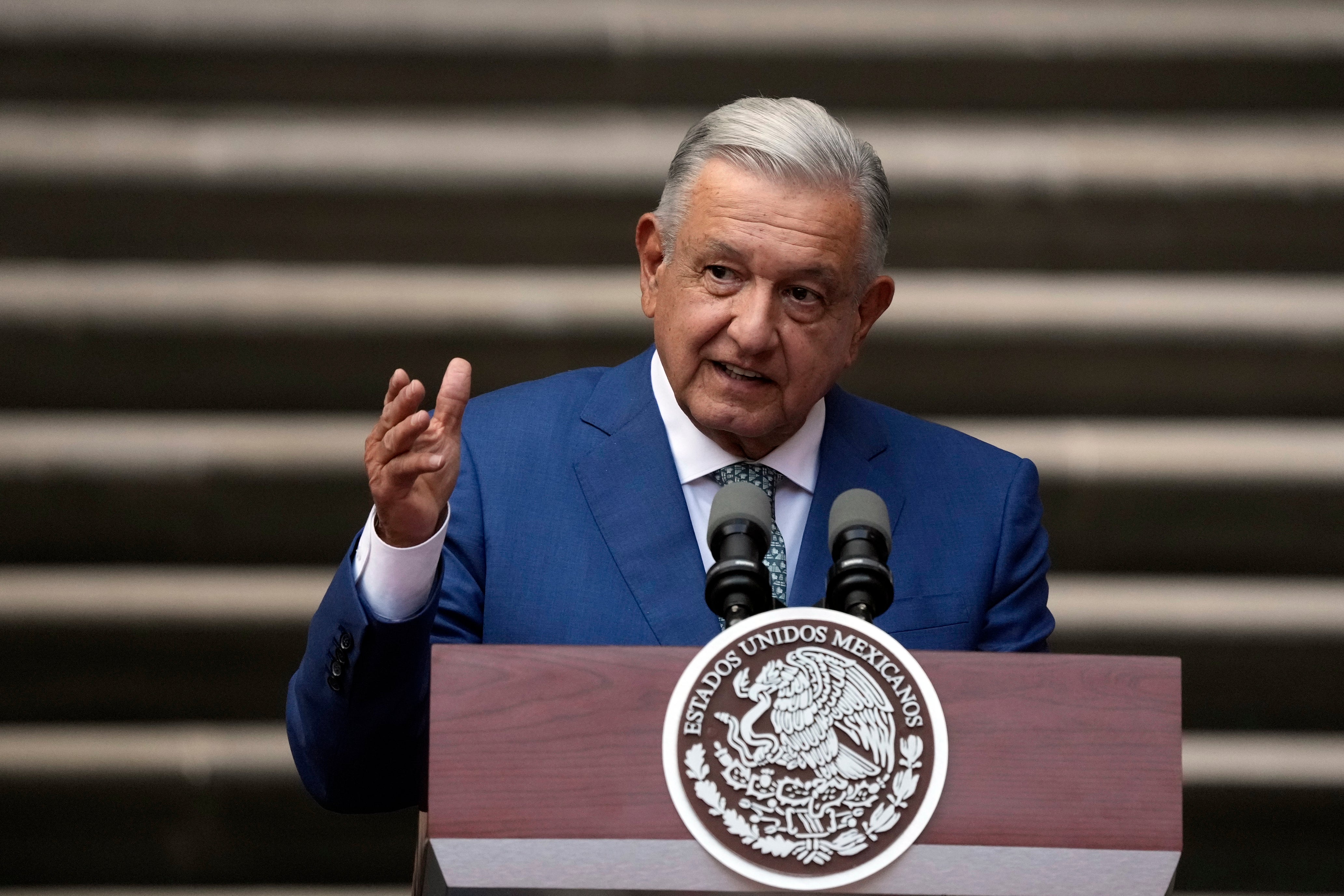Mexico president foresees court challenges to electoral law
Mexico's president says he expects court challenges to a new law that will cut funding for the country's electoral agency and weaken oversight of campaign spending

Mexico’s president said Thursday he expects court challenges to a new law that will cut money for thousands of staffers at the country’s electoral agency and weaken oversight of campaign spending.
President Andrés Manuel López Obrador, who has long criticized the agency for costing taxpayers too much and paying high salaries, said he’ll sign the new bill into law even though electoral authorities say it will weaken democracy in Mexico.
The bill was approved late Wednesday by Mexico’s Senate, 72-50.
The new law will cut salaries, funding for local election offices and training for citizens who operate and oversee polling stations. It also will reduce sanctions for candidates who fail to report campaign spending.
López Obrador said he expects court challenges to the bill, like those that have previously been filed against many of his administration’s reforms.
“All of this is part of normal politics in a democracy,” López Obrador said, adding that he believed the measure should survive constitutional challenges because none of it was “outside the law.”
While López Obrador was nonchalant about the court challenges, in the past he has frequently attacked Mexico’s judiciary and claimed judges are part of a conservative conspiracy against his administration.
Elections in Mexico are expensive by international standards, in part because almost all legal campaign financing is, by law, supplied by the government. The electoral institute also issues the secure voter ID cards that are the most commonly accepted form of identification in Mexico, and oversees balloting in the remote and often dangerous corners of the country.
Protests are already planned in multiple cities in Mexico against the reform.
The legislative initiative, known as “Plan B”, was proposed by the president in December after he did not obtain enough votes in Congress for even deeper electoral changes that would have changed the size and makeup of Congress.
The president has repeatedly denied that the reform package could put the elections in Mexico at risk.
López Obrador and his supporters have been critical of the electoral institute since 2006 when he came within 0.56% of the vote of winning the presidency and denounced his loss as fraudulent. He and his supporters launched a mass protest movement. He later won the presidency by a wide margin in 2018.
Many in Mexico see the electoral institute as a key pillar of the country’s modern democracy since 2000.
López Obrador’s ruling Morena party is favored in next year’s national elections and the opposition is in disarray, which would seem to give the president little incentive to attack the electoral institute. He remains highly popular in Mexico, but is not eligible for re-election.
Lorenzo Córdova, the institute’s leader who has been a frequent target of López Obrador, has aggressively defended the agency. Before Wednesday’s vote, Córdova wrote in his Twitter account that the reforms “seek to cut thousands of people who work every day to guarantee trustworthy elections, something that will of course pose a risk for future elections.”
The president had already worried some observers by weakening regulatory and oversight agencies and concentrating enormous responsibility in the hands of the military, raising questions about his respect for the country’s democratic institutions.
Bookmark popover
Removed from bookmarks